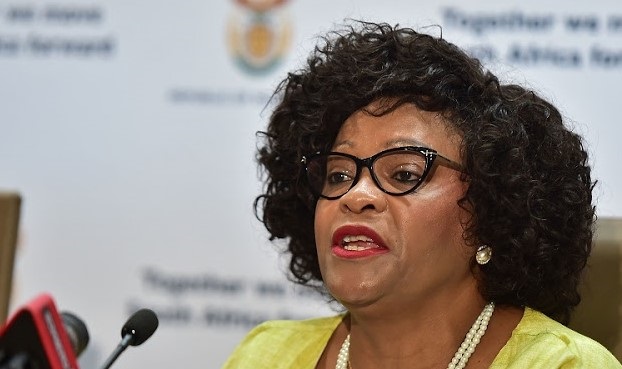The South African government will advance the agenda of inclusive growth, a low-carbon and climate-resilient economy not only in the country but also on the African continent, an official said on Wednesday, December 12, 2018.

Minister of Environmental Affairs, Nomvula Mokonyane, said this when she announced the government’s plan to host the Partnership for Action on Green Economy (PAGE) Conference, scheduled for January 10-11, 2019 in Cape Town.
The PAGE Conference supports countries and regions to put sustainability at the heart of economic policies and practices to advance the 2030 Agenda for Sustainable Development.
“Hosting the PAGE Conference will advance the agenda of inclusive growth, and the adoption of a low-carbon and climate resilient economy, domestically and on the African continent,” said Mokonyane.
She said the PAGE programme aimed to further strengthen the cooperation, coordination and capabilities required to implement South Africa’s transition to a low-carbon, resource-efficient and pro-employment development path.
The 3rd PAGE Ministerial Conference, under the theme Advancing Inclusive and Sustainable Economies, follows two successful conferences, which were held in Dubai in 2014 and Berlin in 2017 respectively.
PAGE was launched in 2013 as a response to the call at Rio+20 to support those countries wishing to embark on greener and more inclusive growth trajectories.
The platform brings together five UN agencies: UN Environment, International Labour Organisation, UN Development Programme, UN Industrial Development Organisation, and UN Institute for Training and Research.
The platform, whose mandates, expertise and networks combined can offer integrated and holistic support to countries on inclusive green economy, ensuring coherence and avoiding duplication.
Mokonyane said the 3rd PAGE Ministerial Conference would provide an opportunity for member states to reinforce the commitment to transition to a green and sustainable economy.
He said it would also to demonstrate implementation of the tools and strategies to accelerate, scale up and sustain the momentum on deepening green economy principles in socio-economic and environmental planning frameworks.
The minister said South Africa had been working to adopt green economy strategies in line with its National Development Plan Vision 2030, which committed the country to an environmentally sustainable and equitable transition to a low-carbon economy.
The country, she said, was currently implementing programmes to promote energy efficiency, green transport, sustainable housing and climate resilient agriculture.
Similarly, the South African government on Wednesday welcomed the resumption of peace talks aimed at resolving the Western Sahara issue.
“South Africa welcomes the recently concluded first round of negotiations held on Dec. 5 to 6, in Geneva, Switzerland on the situation in Western Sahara,” Minister of International Relations and Cooperation, Lindiwe Sisulu, said.
The talks, held after six years of suspended negotiations, would be followed by a second round-table in the first quarter of 2019.
Sisulu said her country was pleased that Morocco and the Polisario Front had been able to meet to seek a political solution to the conflict.
South Africa is hopeful that this negotiations process, led by former Germen President, Horst Kohler, in his capacity as the Personal Envoy of UN Secretary-General Antonio Guterres will lead to a just, lasting, and mutually acceptable solution.
The negotiation will provide for the self-determination of the people of Western Sahara, Sisulu said in a statement.
“It is our hope that these negotiations are a step in the right direction towards reviving the long-stalled talks between the Polisario Front and Morocco,” she said.
The negotiations took place in accordance with UN Security Council Resolution 2440 adopted by the UN Security Council on Oct. 31, 2018.
The negotiations called on the parties to show “political will and work in an atmosphere propitious for dialogue.’’
Sisulu pledged that South Africa would utilise its upcoming term on the UN Security Council (UNSC) to call on the UN to continue to support the right to self determination of the people of Western Sahara.
South Africa will serve its 2019-2020 term as a non-permanent member of the UNSC.
Western Sahara was partitioned between Morocco and Mauritania at the end of Spain’s colonial rule in 1976.
When Mauritania, under pressure from Polisario guerrillas, abandoned all claims to its portion in August 1979, Morocco moved to occupy that sector and asserted administrative control over the whole territory.
Fighting then broke out between Morocco and the Polisario Front, which is fighting for the independence of Western Sahara.
A cease-fire was signed in 1991 and in that year, the UN mission, known by its French acronym as Minurso, was deployed to monitor the cease-fire.
